April 1, 2018
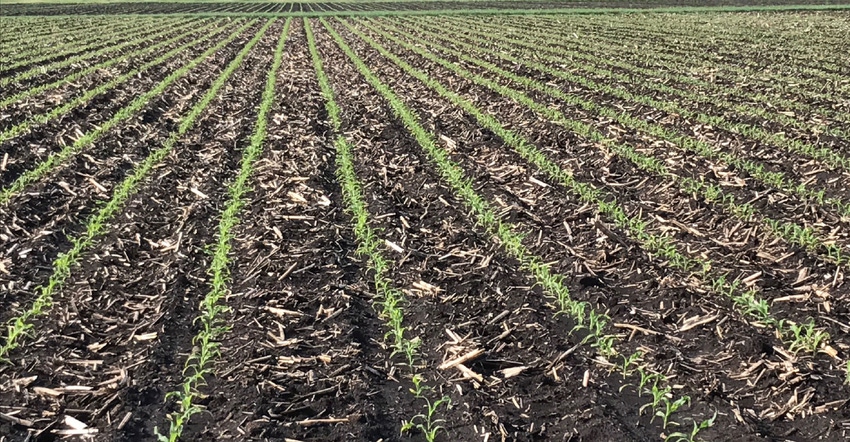
Sponsored Content
Over the past three years, Beck’s Practical Farm Research (PFR)® team has tested the use of sugar in-furrow on corn. The theory behind in-furrow applications of sugar is that the sugar will serve to feed the microbial population in the soil. With a more active microbial population, there is a greater likelihood that the corn plants will process more nutrients and increase yields.
In the first year of testing, this study was conducted at Beck’s Ohio PFR site in 2015. The data from year one resulted in a yield increase of over 10 Bu./A. During the second year of testing, Beck’s PFR team tested multiple applications of sugar including in-furrow alone, sugar with PureGrade® Diamond 6-24-6 starter, and compared back to an untreated control.
During the course of the 2016 season, each treatment showed an advantage in stalk circumference when compared to the untreated control. However, it’s important to note that no true difference was noted between the treatments at the end of the season. Although a yield difference was not observed in 2016, Beck’s PFR team noted that the larger stalks observed throughout the season did appear to lead to better standability and greener stalks at the time of harvest.
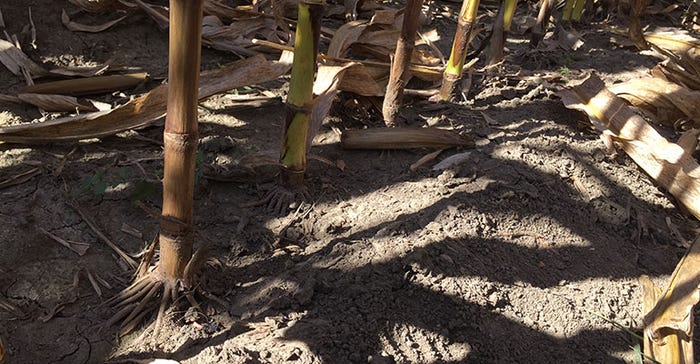
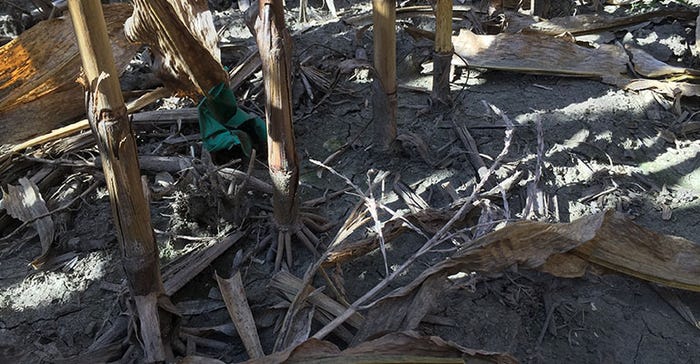
This study was continued in 2017 and the team saw slightly different results. In 2017, multiple sugar based products were tested. These products included: feed grade dextrose, eXceed™ Nano Brown Sugar, and Carbose. Beck’s PFR team noted that feed grade dextrose was selected as the sugar form utilized based on its ease of use and mixing capabilities. Compared to other dry forms of sugar, feed grade dextrose would not settle out overnight when left mixed in a tank. The product Nano Brown Sugar contains brown sugar as well as humic acid and molybdenum (Mo). Carbose was also tested and contains sugar in the forms of glucose, fructose, maltose, and sucrose as well as the bacteria Azotobacter vinelandii and Lactobacillus acidophilus.
When observing plant and soil characteristics throughout the course of the 2017 season, the team in Ohio noted that a few differences could be observed across the different treatments. When the corn plants reached the V3 growth stage, a solvita soil test was conducted on soil within the furrow. Slight differences were observed in CO2 emissions from the soil, indicating there was greater microbial activity in soils with higher levels of CO2. However, these differences were not enough to indicate a difference in ratings on the solvita scale.

In addition to the soil tests, the corn plant size was also measured at the V12 growth stage. Plants were noticeably larger in treatments where sugar had been applied, with the largest average plant observed in treatments that received 4 lb. of feed grade dextrose.
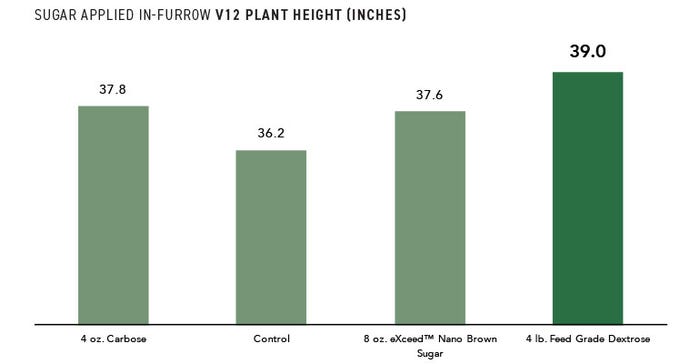
When yields were averaged across all four of the PFR sites that conducted this study (KY, Central IL, Southern IL, and OH), the feed grade dextrose treatments showed the greatest advantage with a yield increase of 3.5 Bu./A. and a return on investment (ROI) of $11.23/A. This was followed by eXceed Nano Brown Sugar with a 2.0 Bu./A. yield increase and an ROI of $5.87/A. Carbose provided a yield increase of 1.4 Bu./A. and a $4.13/A. ROI.
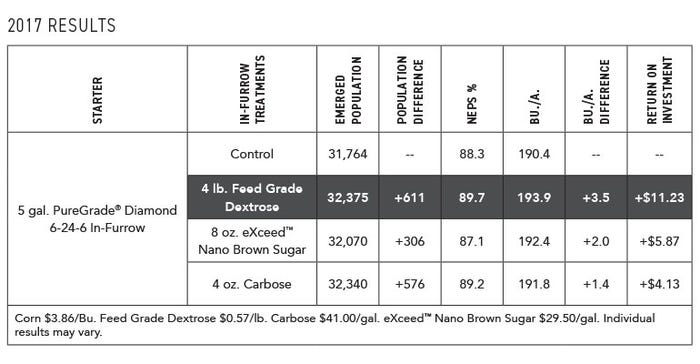
If you are interested in more information regarding Beck’s Practical Farm Research, these studies and others can be accessed via the links below.
Beck’s PFR is the largest source of unbiased, cutting-edge agronomic information in the industry. More than 500 studies were conducted in 2017, comparing over 150 products across multiple locations to learn how different management practices and new technologies perform in field environments. In evaluating agronomic practices and input products, not comparing seed products, Beck’s PFR aims to help farmers maximize their input dollars and increase their bottom line. To view more studies from the 2017 PFR book, click here.
Practical Farm Research (PFR)® is a registered trademark of Beck’s Superior Hybrids, Inc. PureGrade® is a registered trademark of The Andersons, Inc. eXceed™ is a trademark of Max Systems, LLC.
About the Author(s)
You May Also Like




